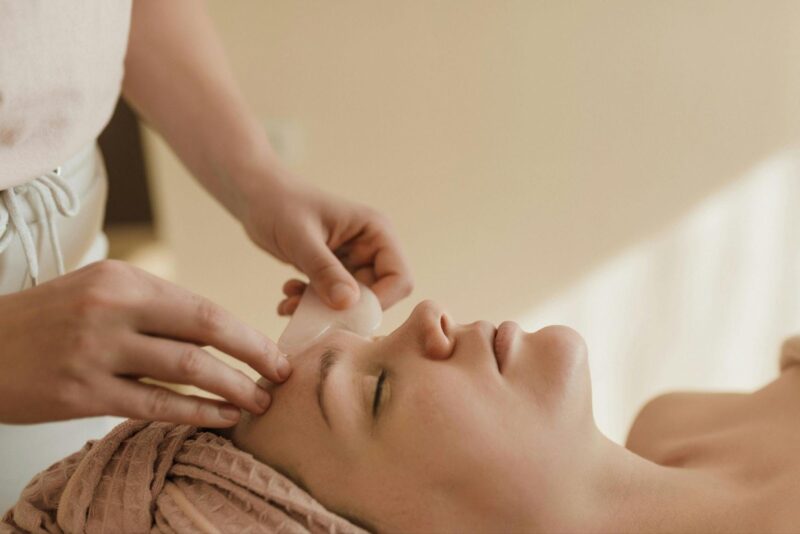
Using magic mushrooms extends beyond recreational purposes, with clinical trials now comprehensively exploring their impact on various conditions. These studies not only assist in destigmatizing the use of mushrooms but also contribute to the growth of the psychedelic market. Through services like magic mushroom delivery from zoomiescanada.ca, individuals gain access to mushrooms to address their specific needs.
These scientific endeavours advocate for increased accessibility to psilocybin therapy, which aims to enhance individuals’ overall well-being. Accepting this mental health approach entails understanding more than just the consumption of psilocybin.
Key Takeaways:
- The amount of active compound a patient ingests can vary widely, from 10 to 30 milligrams.
- The use of psychedelics in treating depression demonstrates enduring effects for up to 12 months.
- Choosing the right therapy is necessary to combine with psilocybin treatment.
Psilocybin and Psychotherapy: What Do They Mean?
Recent studies have underscored the promising application of psilocybin psychotherapy in addressing treatment-resistant depression. Within carefully monitored research environments, it has shown prolonged relief from depressive symptoms following one or two sessions.
Most people associate psilocybin as the primary compound responsible for its effects and benefits; however, this perception doesn’t align with the biological process. Psilocybin undergoes a metabolic transformation within the body, converting it into psilocin. The latter substance interacts with the brain to produce the effects and experiences.
Talk therapy is a treatment method that professionals use to address their patients who suffer from mental health concerns. Talk therapy techniques are highly individualized and adaptable, and this flexibility extends to incorporating them into the treatment of psilocybin-related matters.
What Studies Are Saying?
A study in the Journal of Psychopharmacology by Natalie Gukasyan and associates explores whether psilocybin can last for a year.
Throughout the 12-month duration, all 24 participants consistently attended follow-up visits. At the 12-month mark, treatment response and remission rates stood at 75% and 58%, respectively. Over the long-term follow-up period, no serious adverse events occurred, and none of the participants disclosed psilocybin use outside the study framework.
Aside from its known application in treating depression, psilocybin shows promise in addressing the needs of patients who don’t respond to conventional treatments.
Treatment-resistant depression (TRD) involves multiple unsuccessful attempts with different medications. Although there isn’t unanimous consent on its definition, it generally pertains to a lack of response to adequate trials with two antidepressants in terms of dosage and duration.
What Type of Psychotherapy Complements Psilocybin Treatment?
We can easily find studies on psilocybin and depression or TRD, but not much on the discussions surrounding the specific therapeutic approaches required.
In 2023, a study from the Journal of Mental Health Nursing examined what type of therapy would work alongside psilocybin treatment for TRD.
Talk therapy for TRD:
| COGNITIVE BEHAVIOURAL THERAPY (CBT) | INTERPERSONAL PSYCHOTHERAPY (IPT) | INTENSIVE SHORT-TERM DYNAMIC PSYCHOTHERAPY (ISTDP) |
| CBT encompasses therapeutic techniques crafted to discern, assess, and modify distorted thoughts and beliefs.
Therapists guide individuals to cultivate a more adaptive mindset and behaviour. Recognizing and examining automatic negative thoughts is central to this approach, as they intertwine with emotions and actions. |
IPT revolves around enhancing social support, reducing interpersonal stress, facilitating emotional processing, and refining interpersonal skills.
IPT effectively integrates elements found in various structured psychotherapies. |
ISTDP offers a concise yet effective approach to addressing the emotional underpinnings of depression.
This therapeutic model engages patients in the process of confronting their defence mechanisms that fuel depressive tendencies. |
Feedback from participants suggests a preference for an open, flexible, and human-centered approach over the structured and directive nature of CBT, which many found unhelpful.
IPT offers a structured approach to examining the emotional shifts and realizations brought forth by the psilocybin encounter. It equips individuals with tools to navigate periods of change.
ISTDP is in tune with the psilocybin journey by focusing on activating emotions, which may help understand and navigate the emotional surrender. With its emphasis on attachment, ISTDP might encourage and reinforce the feeling of interconnectedness linked to psilocybin experiences.

The professional will choose therapy treatment to determine which method will work best for you. The professional makes this determination by engaging with you before the session to gain deeper insights into your needs and preferences and reviewing pertinent records when available.
What to Expect?
- Participants engage in multiple talk therapy sessions facilitated by two trained therapists or guides who accompany them during the psychedelic experience. This phase fosters safety and trust.
- The guides employ diverse approaches to ready the patient for the psychedelic journey. While some consider challenging experiences integral to subsequent therapeutic and personal growth, undesirable outcomes, often dubbed ‘bad trips,’ stem from attempts to evade such encounters.
- During the psilocybin session, the concepts of ‘set’ and ‘setting’ are necessary. ‘Set’ pertains to the individual’s mental state. ‘Setting’ encompasses the session’s environmental context.
- Although many contemporary clinical trials occur within institutional settings, the session rooms resemble cozy living spaces. Two therapists provide support while the patient can recline on a couch, often encouraged to wear a sleep mask for introspection and sometimes accompanied by carefully curated music.
- At the session’s onset, participants ingest doses ranging from low (10 mg) to high (30 mg or more).
- The guides’ approach involves active listening and occasional prompting to encourage participants to reflect on their experiences. While refraining from extensive analysis, they foster an environment conducive to personal exploration.
- In the aftermath of each session, these guides facilitate an integration process over subsequent days. Through introspective dialogue, people can have the opportunity to explore, understand, and express the meaning of their psychedelic experience.
Conclusion
Psilocybin-assisted therapy shows promising effects for patients experiencing depression and TRD, but there is still considerable progress needed before it can be an official treatment regimen. Researchers are actively exploring ways to integrate effective talk therapy post-treatment and understand its impact on the brain for a comprehensive understanding of its effects.
Frequently Asked Questions
Is A Single Dose Of Psilocybin Enough To Treat Depression?
A study from the New England Journal of Medicine shows that during phase 2 of a clinical trial, a single dose of 25 mg of psilocybin led to notable reductions in depression scores over 3 weeks.
How Long Does The Session Last?
While the effects of psilocybin persist for 3-6 hours, the therapeutic session extends for 6 to 8 hours.
Can Psilocybin Sessions Induce A Bad Trip?
Like all drugs, psilocybin can lead to side effects, and the environment may shape the experience. Among the most commonly reported negative effects are panic attacks, anxiety, confusion, paranoia, dysphoria, dizziness, disorientation, restlessness, muscle weakness, nausea or vomiting, and headaches.
From a physical perspective, psilocybin is safe, with no established toxicity in humans.
Can Psilocybin Therapy Also Work In Managing Other Mental Conditions?
Psilocybin may also be effective for treating mental health issues as most of them have comparable symptoms and impact similar brain regions. For certain people, it may cause significant personality changes.

Studies indicate that, in conjunction with therapy, it may have a greater potential to improve people’s lives than just treating mental health issues. This implies that this class of drugs may have a more profound effect on personality than traditional mental drugs.
Is Psilocybin Therapy Expensive?
There’s no established average cost for psilocybin therapy. Individual therapists providing this service in regions such as the Netherlands, Australia, and Canada charge between $500 and $2500. Many individuals opt for purchasing shrooms online instead as a more affordable alternative.










